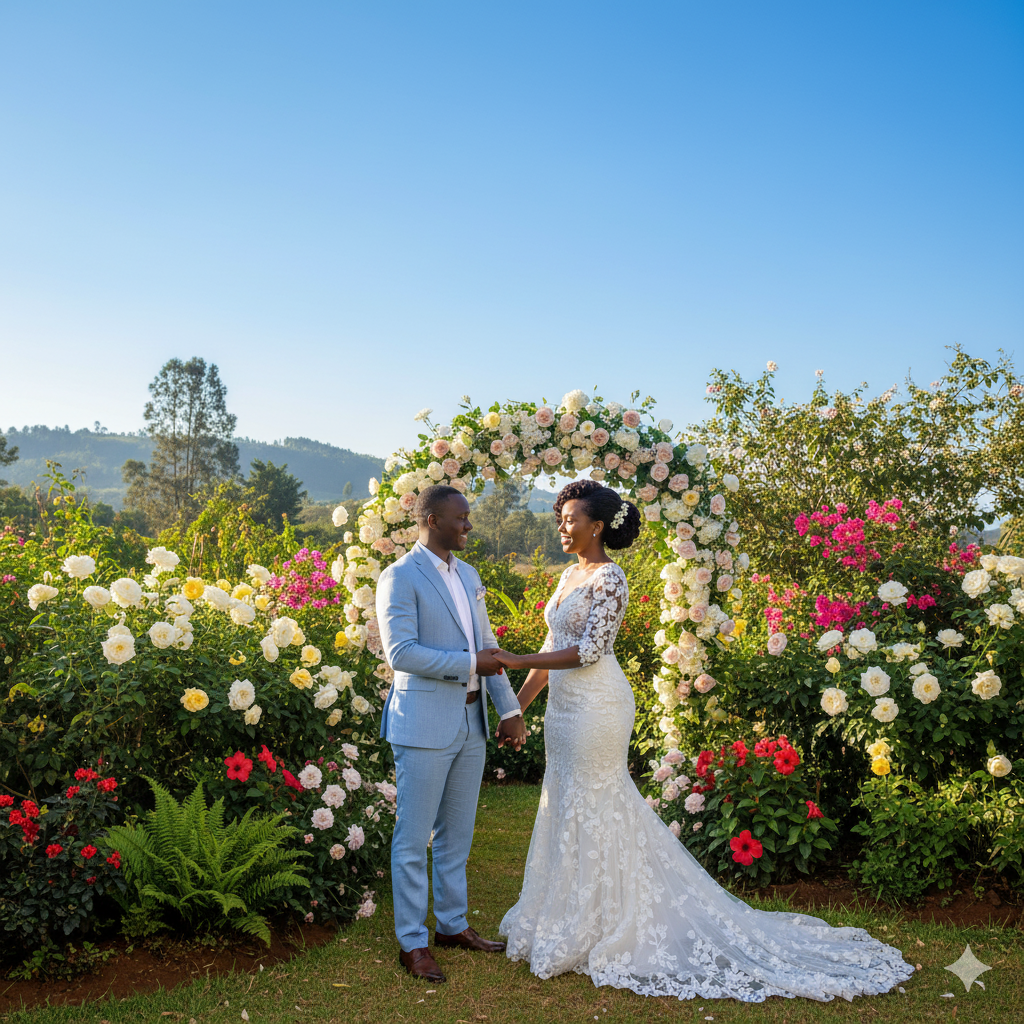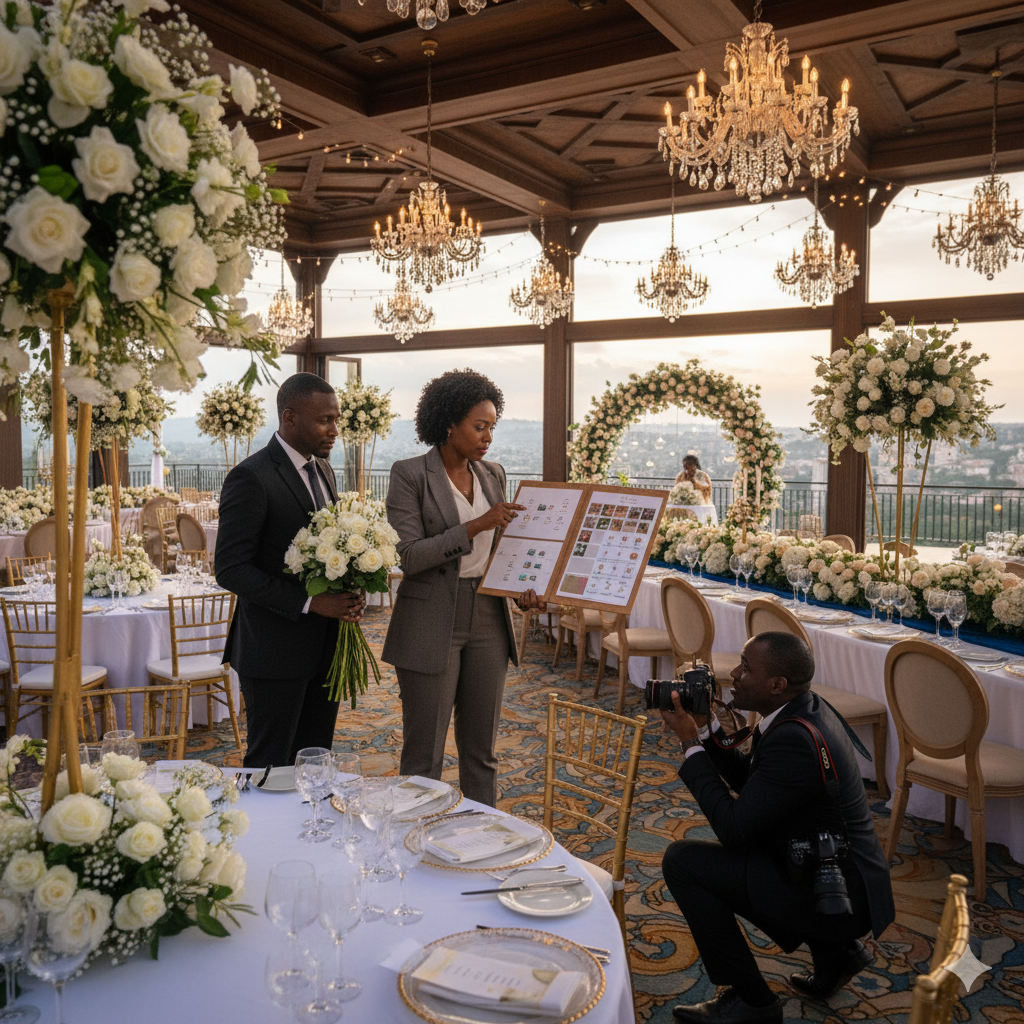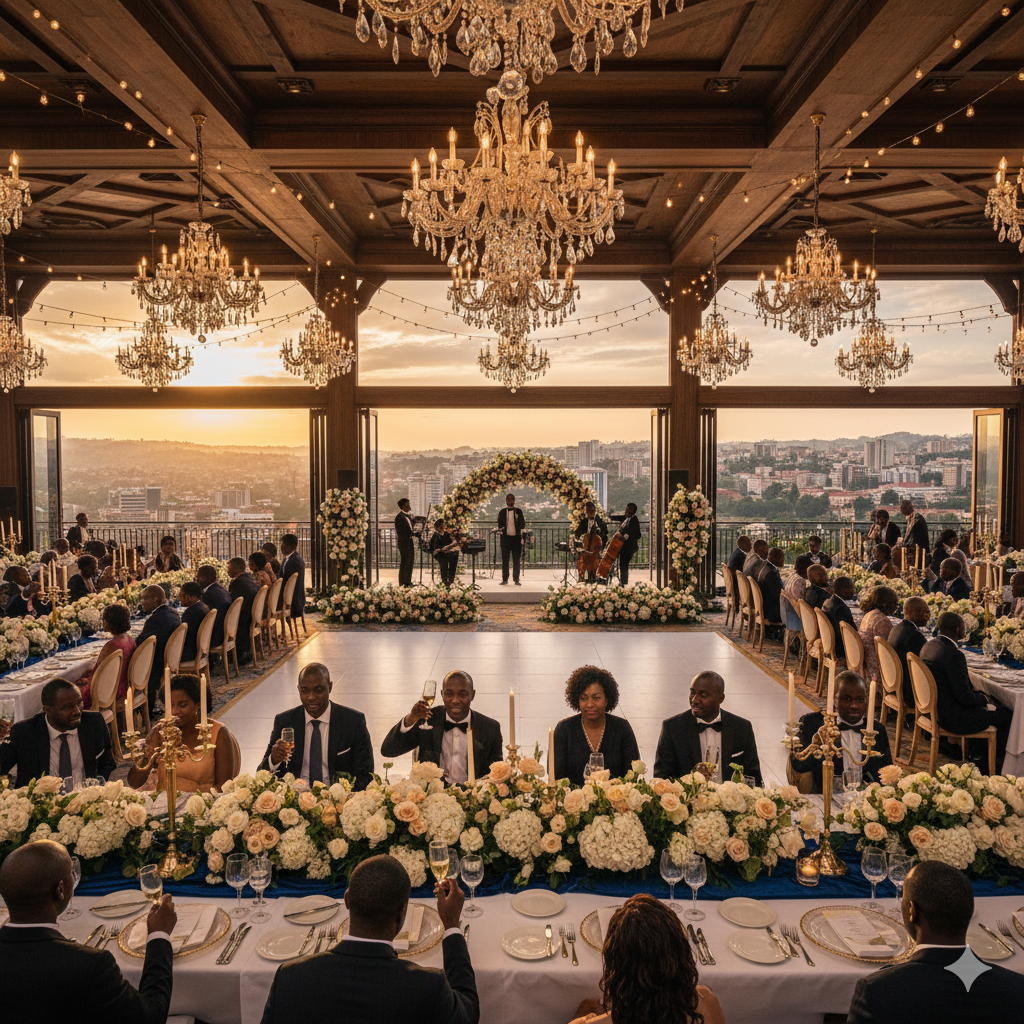
How to Choose the Perfect Date for Your Rwandan Wedding
Planning a wedding is one of the most exciting journeys a couple can embark on, but one of the first and most important decisions you’ll make is choosing the perfect wedding date. In Rwanda, where culture, weather, and family traditions all play a big role, the date you choose sets the tone for everything that follows — from your budget to your guest experience.
In this guide, we’ll walk you through how to pick the ideal date for your Rwandan wedding, considering local seasons, cultural events, venue availability, and family customs. Whether you’re planning a Kigali wedding or a countryside celebration, these insights will help you find a date that feels truly meant for you.
1. Understand the Rwandan Wedding Seasons

In Rwanda, the time of year significantly affects wedding logistics. The country’s tropical highland climate brings two main rainy seasons — from March to May and from October to December — and two dry seasons — from June to September and from January to February.
For couples planning outdoor Rwandan weddings, dry seasons are the most popular. Clear skies and mild temperatures create perfect conditions for ceremonies in gardens, hotels, and event spaces across Kigali and beyond.
However, that popularity comes with a cost — venues book up fast and prices tend to rise during peak dry months like August and December. If you’re set on a dry-season wedding, start booking your venue and vendors at least 9–12 months in advance.
On the other hand, if you’re on a tighter budget or planning a smaller gathering, you might consider hosting your wedding during the short rainy season. Many Kigali wedding venues offer discounted rates then, and with indoor options or tents, you can still have a beautiful event.
2. Consider Cultural and Religious Calendars
Rwandan weddings often weave together cultural traditions, Christian or Catholic ceremonies, and modern receptions. Before settling on a date, check the church calendar or any family cultural obligations that might affect your plans.
For example, some families avoid weddings during Lent or Advent, periods of reflection and fasting in the Christian calendar. Meanwhile, cultural ceremonies like Gusaba (the traditional introduction ceremony) and Gukwa kw’ibahasha (gift presentation) often take place on separate weekends. It’s important to coordinate these with both families to prevent overlap or fatigue.
If your families live in different parts of Rwanda, consider scheduling Gusaba first, followed by the civil and religious ceremonies weeks later. This allows families and guests time to rest, travel, and prepare properly.
3. Think About Venue and Vendor Availability

In Kigali and major towns like Musanze or Huye, wedding venues, photographers, and decorators are often fully booked during popular months like July, August, and December.
Before finalizing your date, check with your preferred wedding venue, decorator, and photographer. If all three are available on the same date, that’s a strong indicator you’ve found your match.
To improve your chances of getting your dream team:
- Start planning at least 9 months ahead.
- Have two or three backup dates ready.
- Ask vendors about off-peak discounts — sometimes a Friday or Sunday event can save you money compared to a Saturday wedding.
Pro tip: Consider weekday weddings for smaller ceremonies. They’re becoming increasingly popular for couples focused on elegance and intimacy rather than crowd size.
4. Balance Budget and Guest Convenience

Budget and guest experience often go hand in hand. Choosing a wedding date that aligns with your guests’ availability can make attendance easier and more joyful.
For instance, weddings scheduled during public holidays in Rwanda, such as Independence Day (July 4th) or Liberation Day (July 4th), allow guests extra travel time. However, note that vendors might charge higher fees due to demand.
If many of your guests are traveling from abroad, align your wedding with holiday seasons like Christmas or Easter when flights are more frequent. But book early — tickets and accommodation costs rise fast.
To make things easier for everyone, send Save the Date cards or digital invites at least three to four months before the big day.
5. Honor Family and Cultural Traditions
In Rwandan culture, family plays a central role in wedding planning. It’s often the parents, aunts, and uncles who guide the process and help decide the sequence of events.
Before you pick your wedding date, consult your families and in-laws. They may have insights about meaningful dates or cultural considerations, such as avoiding months of mourning or aligning your Gusaba with ancestral blessings.
If you’re blending different backgrounds — for example, one family from the north and the other from the south — be open to compromises that honor both sides.
Incorporating family wisdom not only brings peace of mind but also ensures that your wedding date feels blessed and respected.
6. Pay Attention to Symbolic Dates
For many couples, choosing a wedding date goes beyond convenience — it’s about symbolism. You might pick:
- The date you first met or got engaged.
- A meaningful holiday, such as Valentine’s Day.
In Rwandan culture, dates with spiritual or family significance are often seen as blessed beginnings. Whether you’re celebrating at Pinnacle Gardens Kigali, Serena Hotel, or a family compound, choosing a symbolic date makes your wedding story even more memorable.
7. Factor in Your Planning Timeline
Your wedding date will also determine how much time you have to plan. If you want a grand event with multiple ceremonies, a year-long preparation gives you enough room to design invitations, book your favorite vendors, and secure travel arrangements.
Shorter engagements, say three to six months, are possible — especially for smaller weddings or courthouse ceremonies — but they require quick decision-making and flexibility.
Make sure your timeline matches your energy level, budget, and expectations. The goal is to enjoy the journey, not just the day.
8. Think About Photography and Lighting
If you’re dreaming of golden-hour wedding photos, the time of day and season matter. Rwanda’s sunsets are most striking during the dry season, especially between June and August.
Ask your wedding photographer in Kigali for advice on lighting and timing. Morning weddings offer soft, flattering light, while late-afternoon ceremonies capture warm, cinematic tones.
If your venue has a scenic view — like Mount Kigali, Lake Kivu, or Kigali City’s skyline — consider scheduling your ceremony around sunset for breathtaking portraits.
9. Don’t Forget Legal and Administrative Requirements

Before confirming your wedding date, make sure you’ve completed all legal paperwork required for marriage in Rwanda. The civil marriage ceremony is legally binding and usually takes place at your local sector office.
Schedule your civil wedding at least two weeks before the traditional or religious ceremonies to avoid delays. Once your date is approved, you’ll receive an official certificate, allowing you to proceed with the rest of your events confidently.
Choosing the perfect date for your Rwandan wedding isn’t just about the calendar — it’s about finding a balance between tradition, convenience, and emotion. Take your time, consult your loved ones, and think about what truly matters to you as a couple.
When all these pieces align — the season, the venue, the budget, and the blessing — you’ll know you’ve found your perfect day.
After all, a Rwandan wedding is not just an event; it’s a story — and the date you choose is where that story begins.